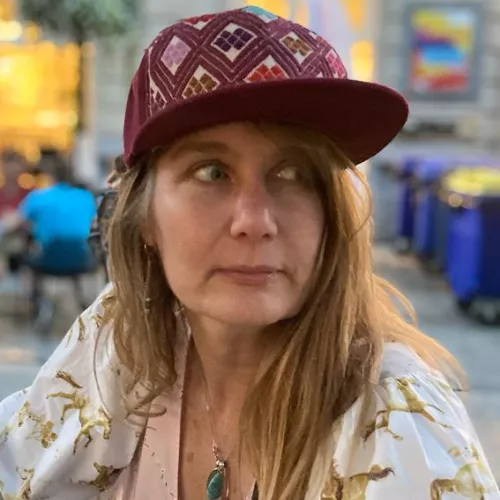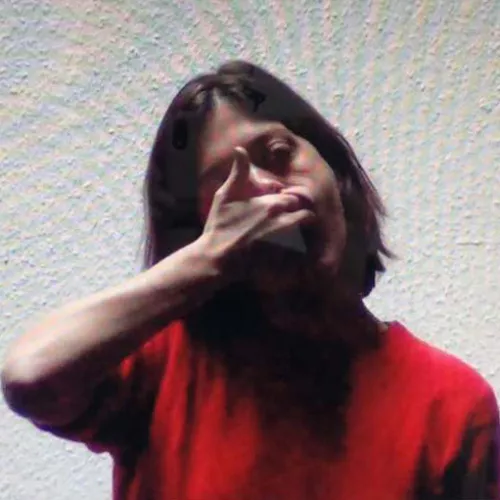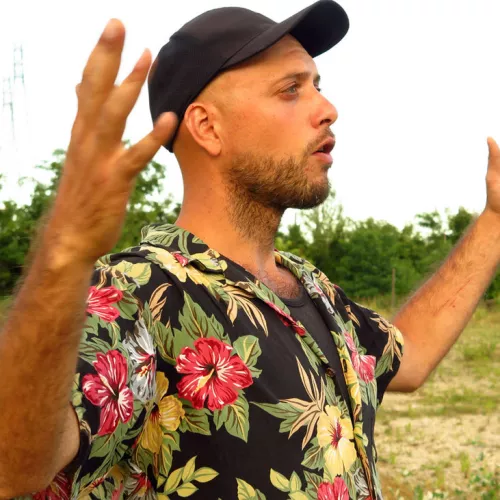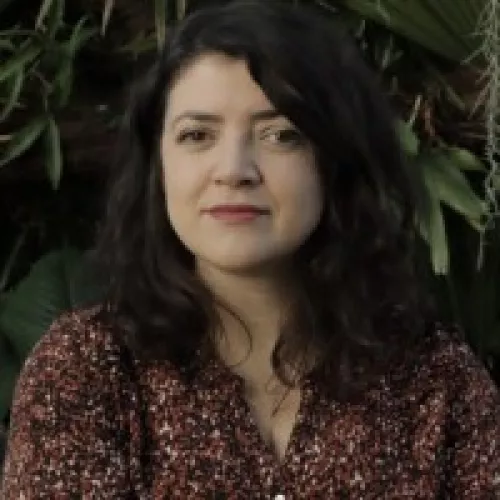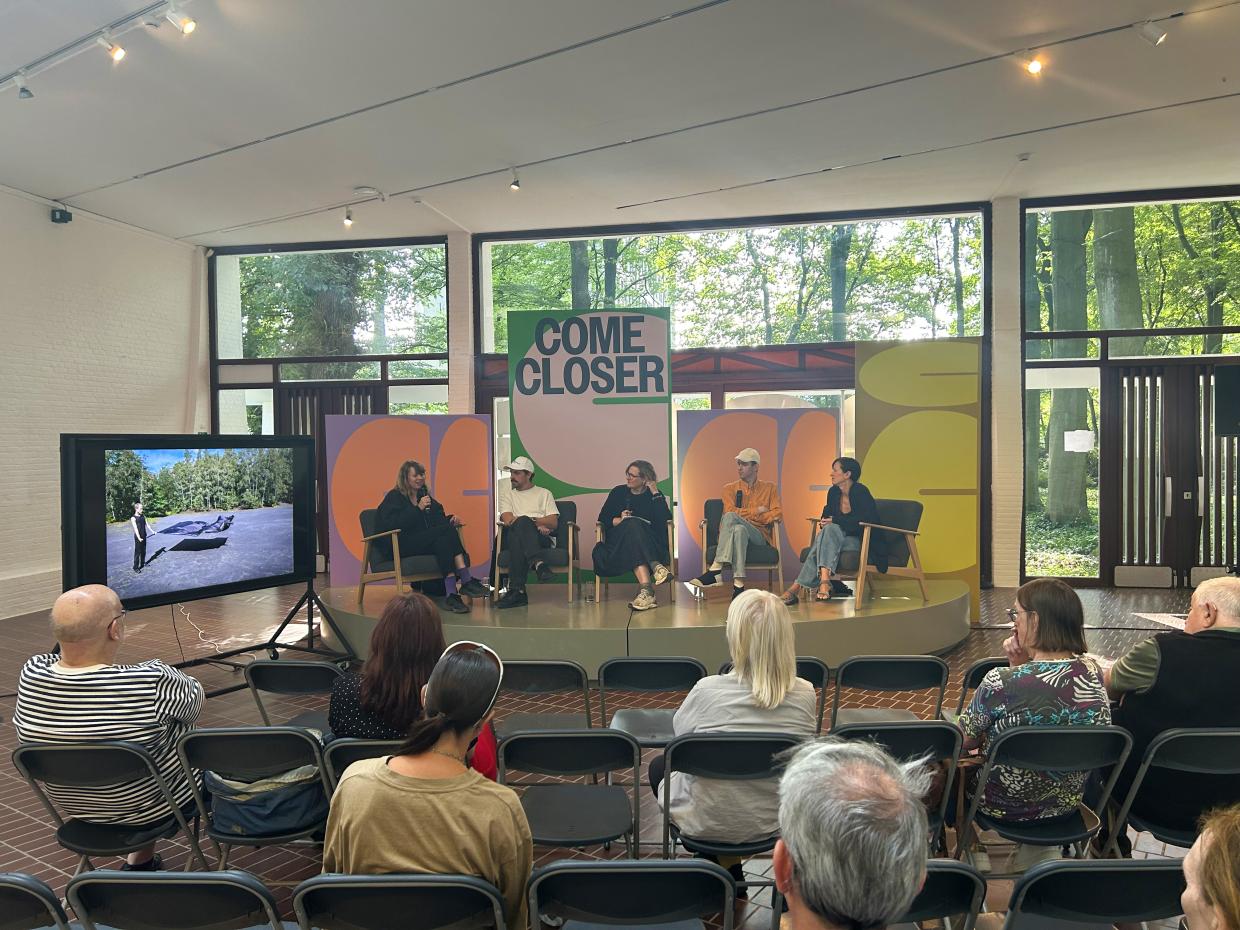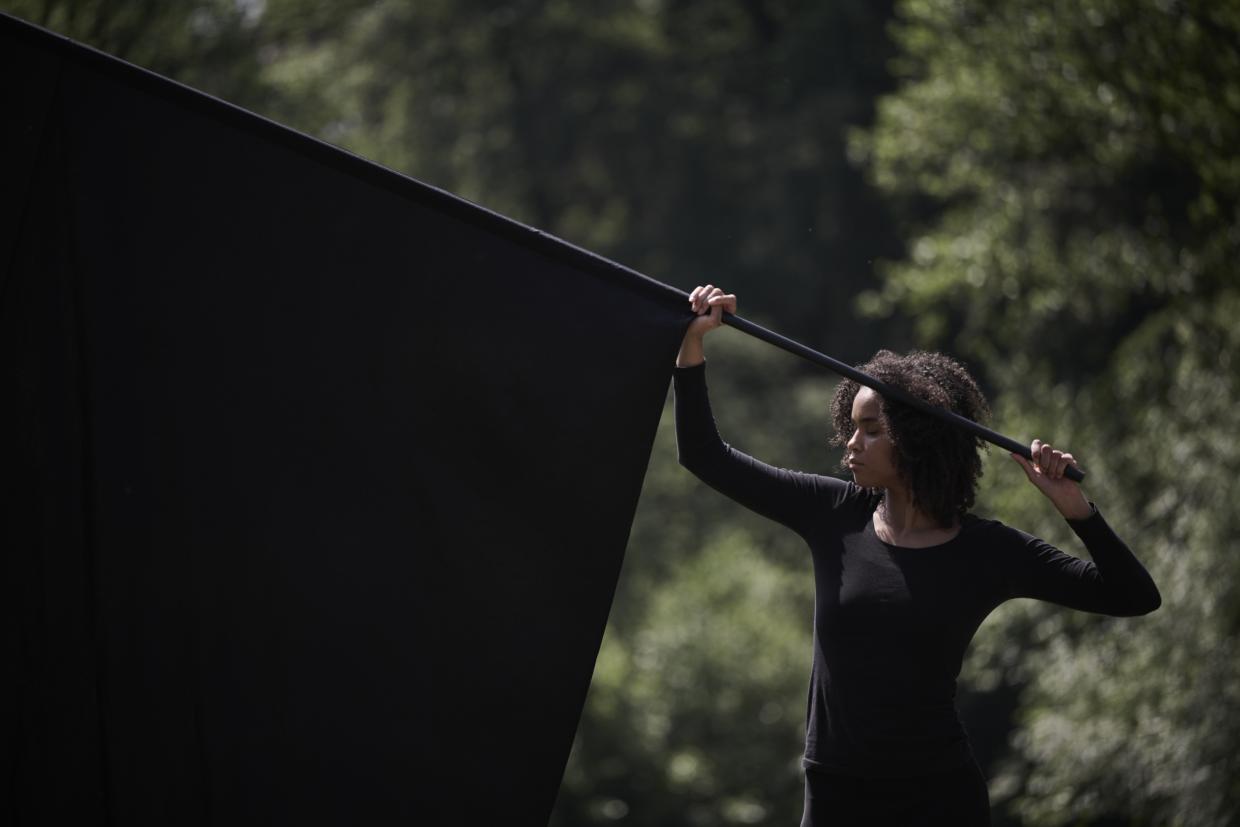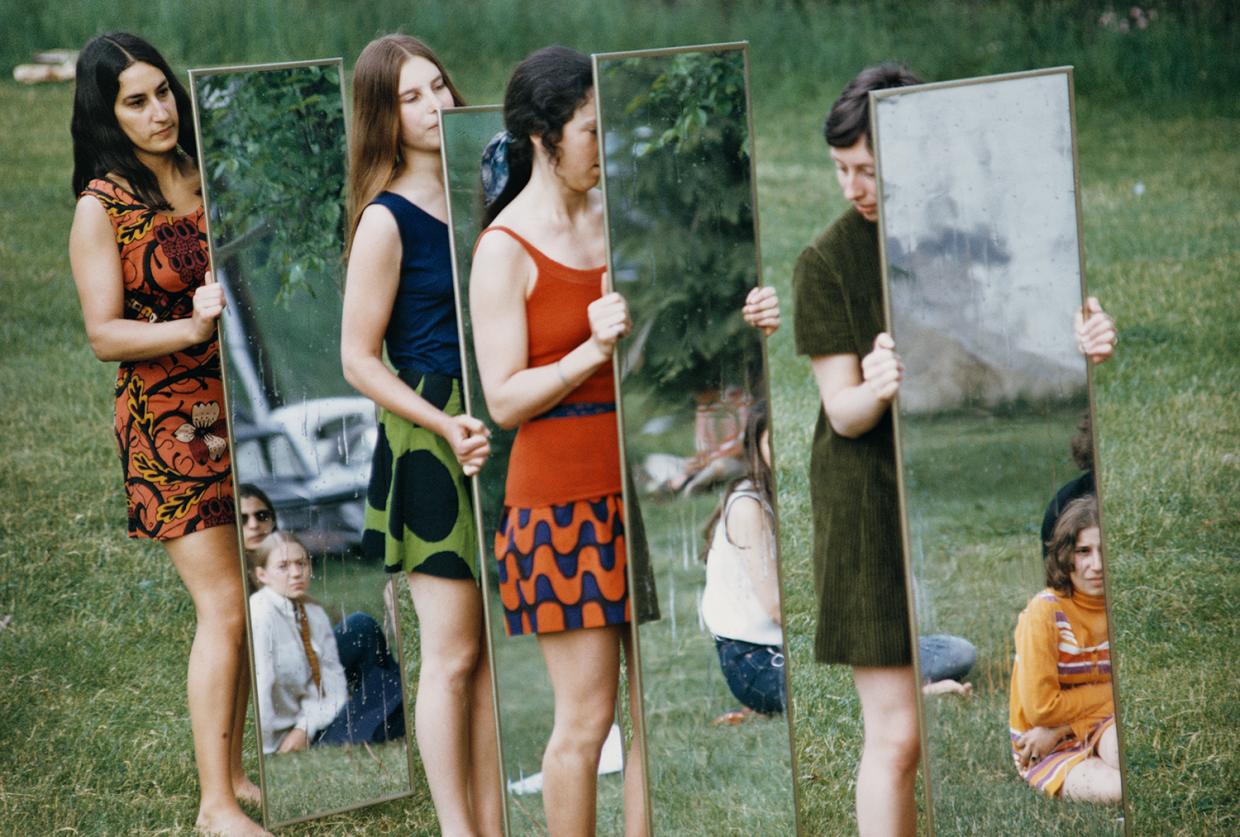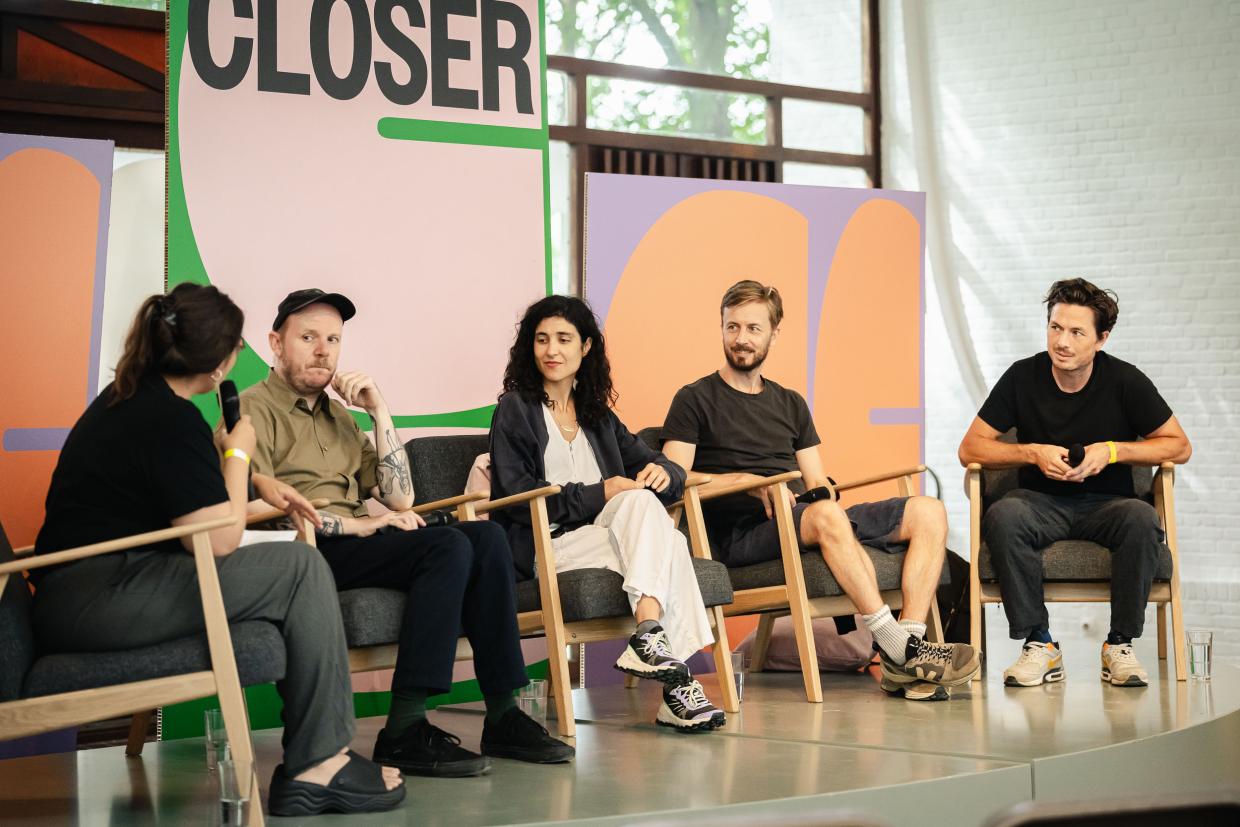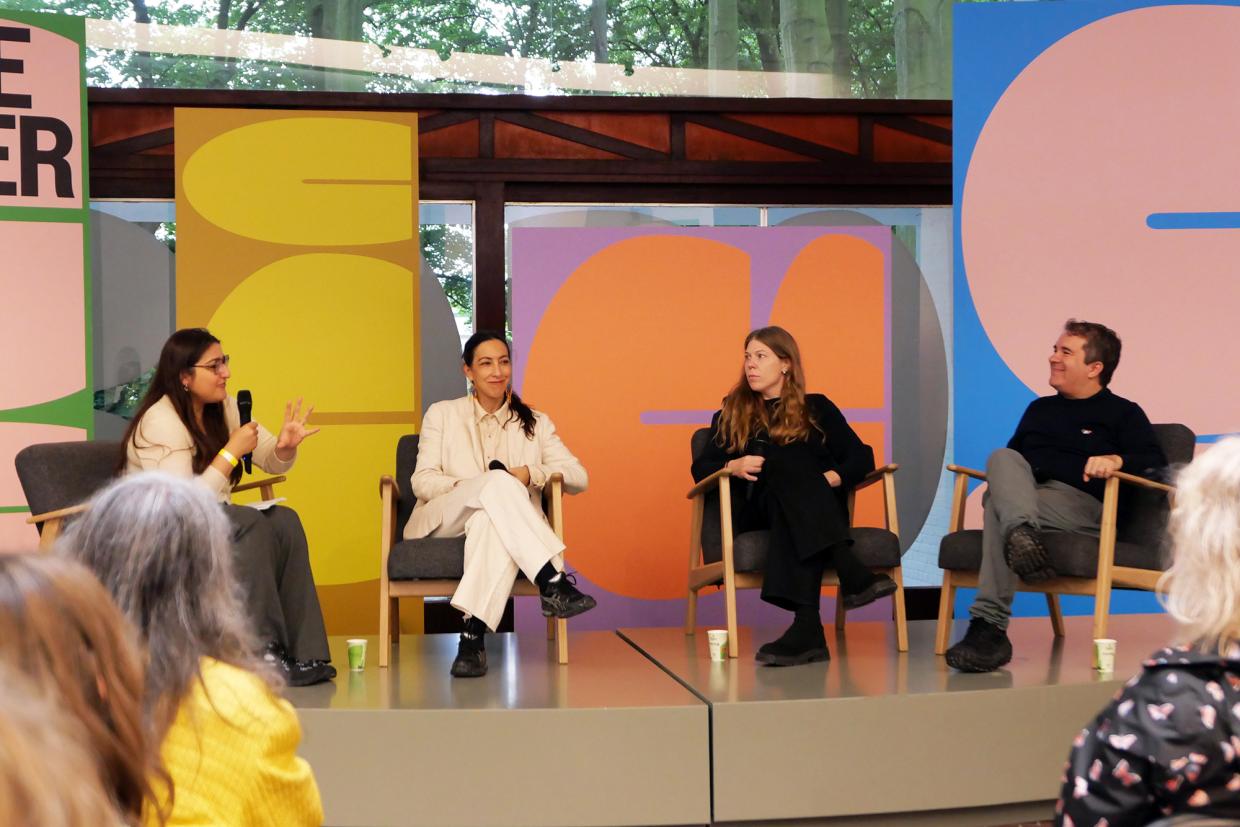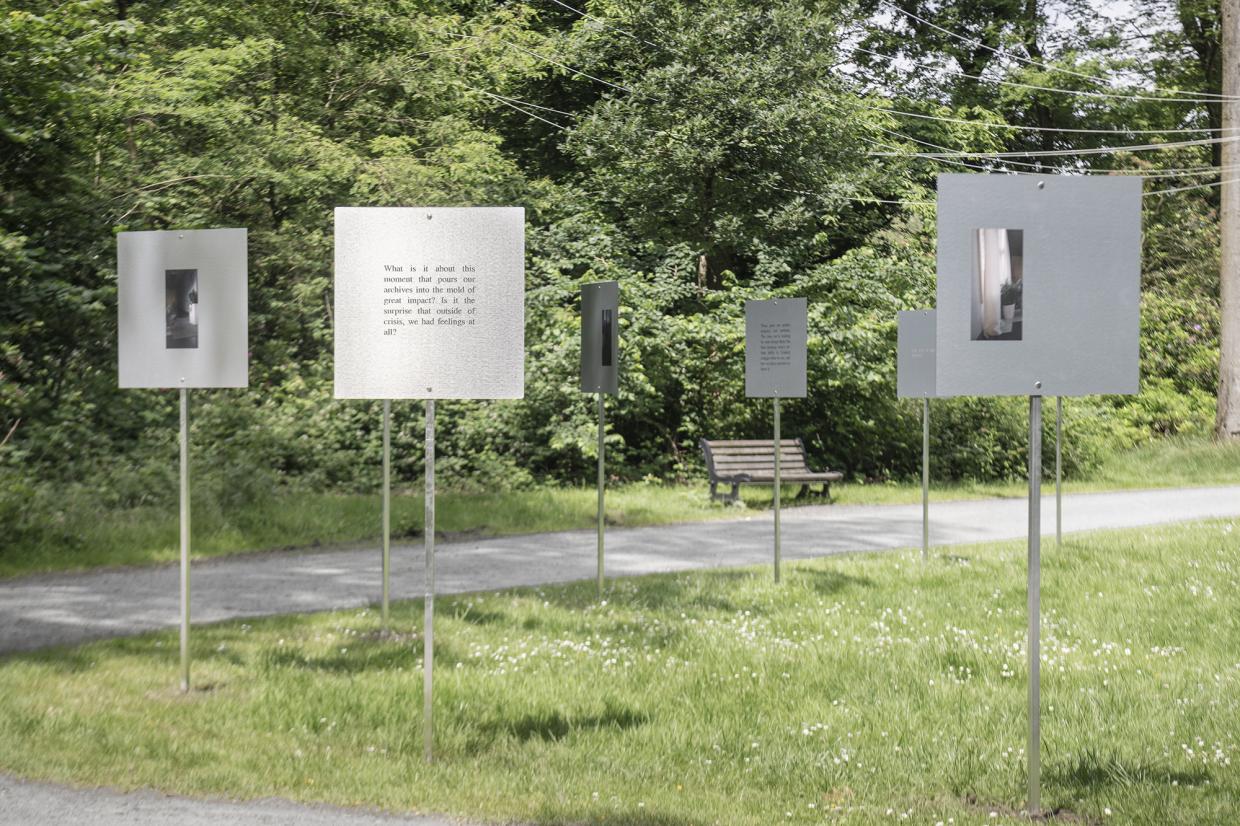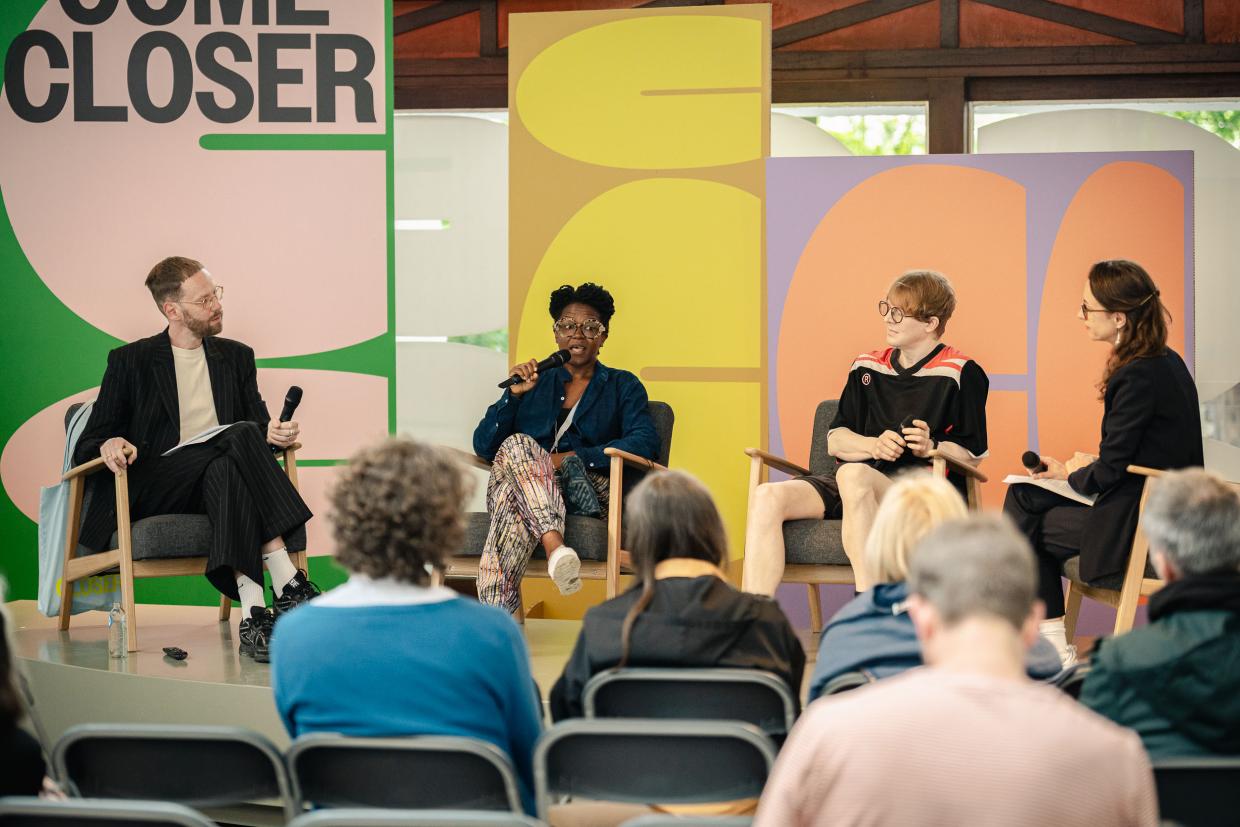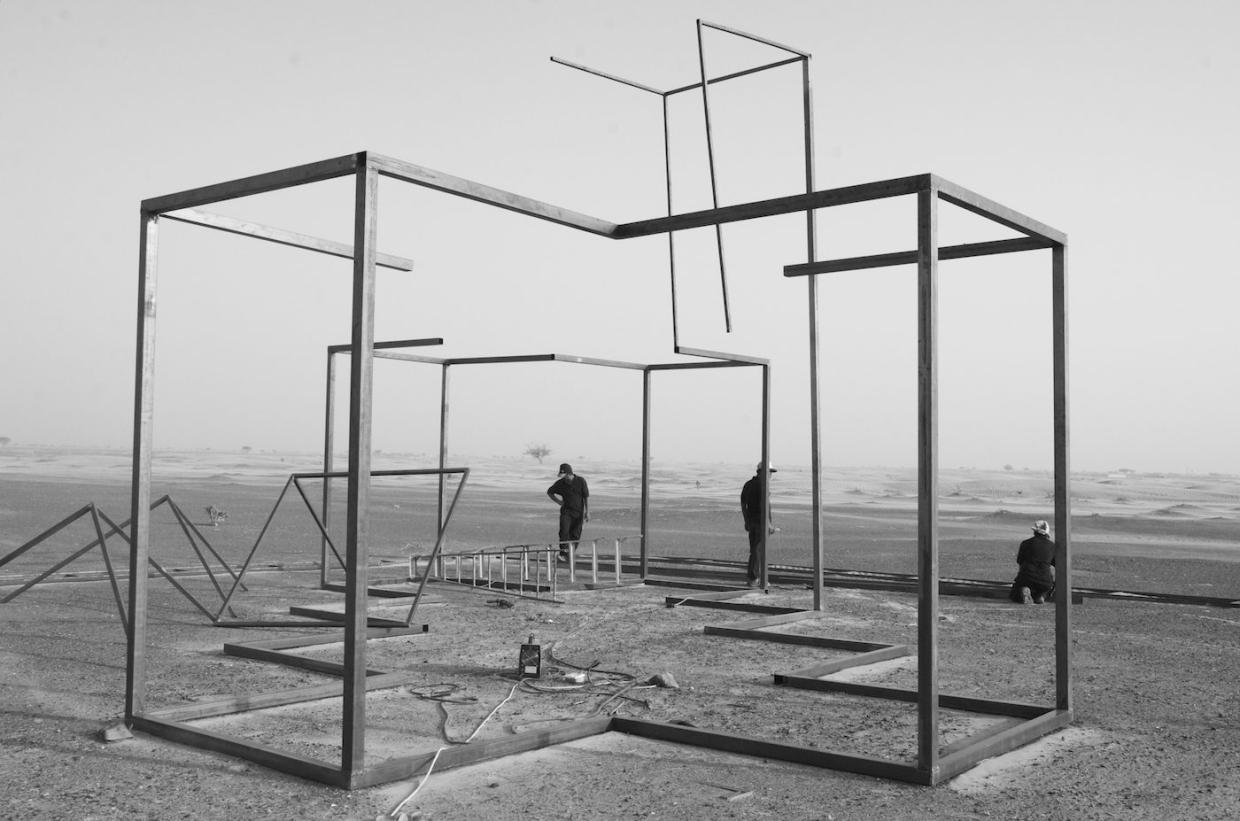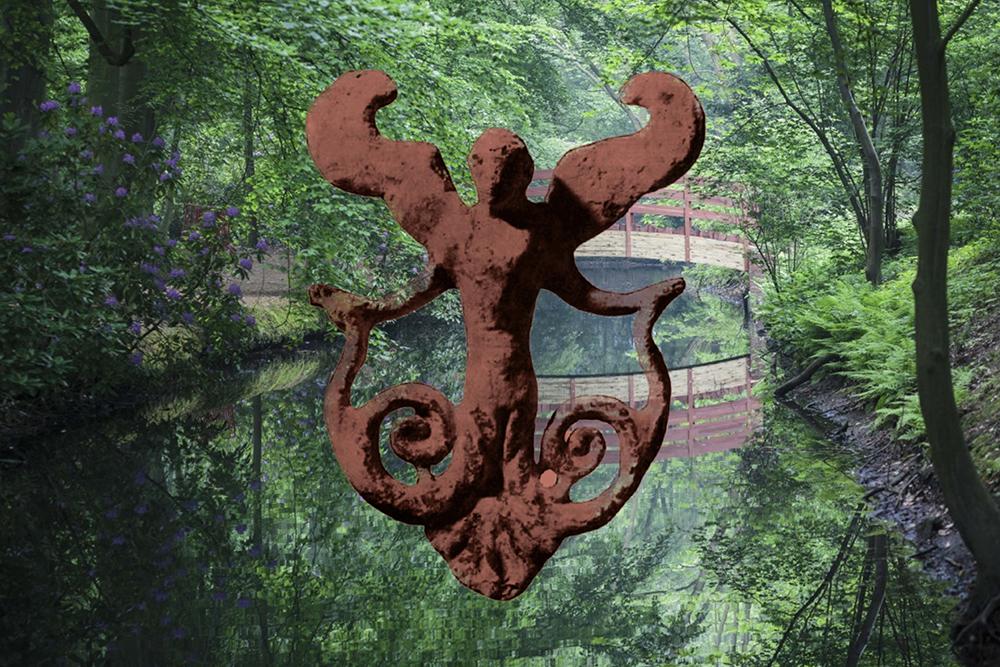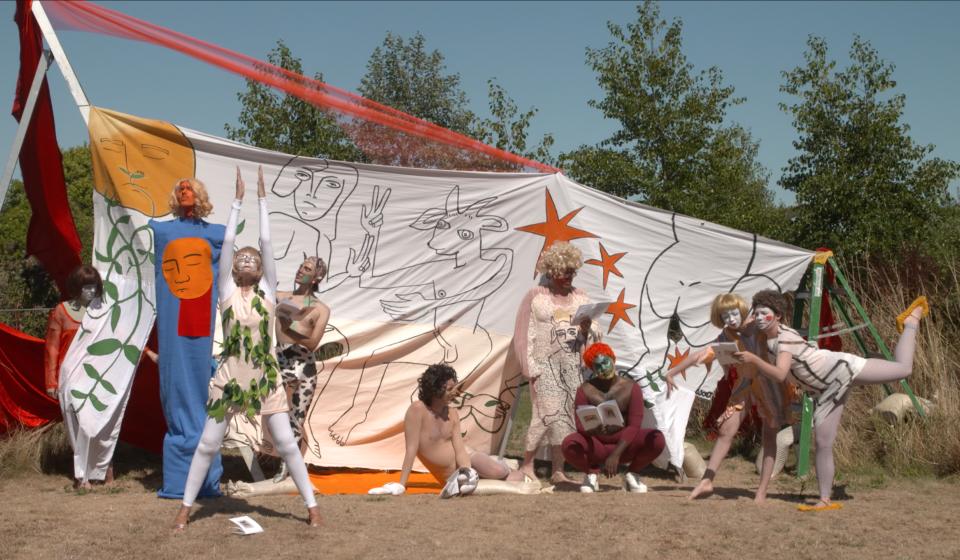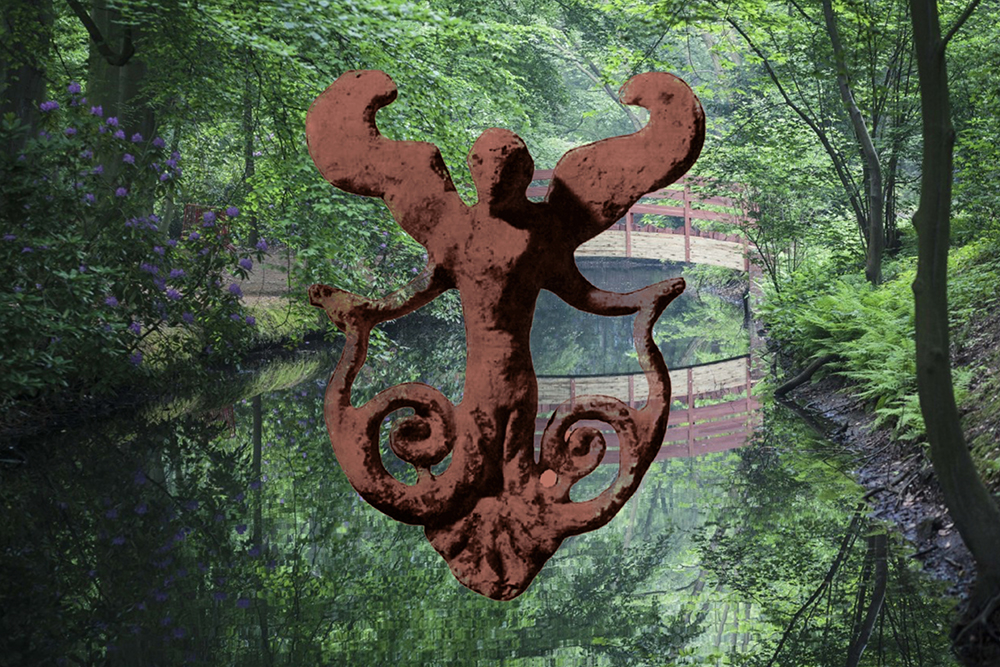
Monsters challenging the school
A conversation with Monsters Assembly
How can we find new ways to produce and share knowledge with each other? This question underpins the Monsters School project. Museum curator Anna Stoppa engaged in conversation with the Monsters Assembly members Gosie Vervloessem, Carolina Mendonça, and Leonardo Delogu.
Monsters joining forces
Monsters Assembly is a collective that formed specifically for this exhibition. How did you come up with this name?
Leonardo Delogu
Gosie and Helga (Baert) imagined the project for wpZimmer, and they invited Carolina and me to join her. When we first met, it became clear that we had a lot in common, even if we have different geographical backgrounds. We have a same approach to art, we share the same interest in investigating how we perceive. Taking this perceiving from a political perspective was the common ground of this “joint venture”.
Gosie Vervloessem
WpZimmer, who brought us together, was interested in how we’d get together as an organisation in transition. In wpZimmer, we’re thinking of other ways to organise ourselves. Thereby we want to undo certain power structures and hierarchies, which is, I think, nicely reflected in our Monsters School initiative.
Monsters Assembly
How did you come up with the name of the Monsters Assembly?
Gosie Vervloessem
Like the previous work I did in the Middelheim Museum, I like to involve “monsters”. I'm interested in how the museum can be a platform for a dialogue about invisible monsters and unheard voices. When talking to Leonardo and Carolina about it, we immediately felt a kind of “friendship” between our practises. We’re all, in different yet similar ways, dealing with monsters. Hence the start of our joint venture, which is a kind of monstrous being itself, being a collective in which other people are joining us, with different rules.
Carolina Mendonça
A monster often consists of different parts that are not necessarily coherent or dealing with linear time. Look at Frankenstein’s monster, composed of different body parts from different persons and different time frames. These different elements are normally not seen together, but they all blend, creating something monstruous yet unique.
This is what interests us in the Monsters School: how can we combine different elements that are normally not coexisting, and how can these combinations lead us to new directions? How can they allow us to become others, and at the same time who we already are?
A monster is also a figure that is normally marginalised, or seen as “the other”. What happens if we embrace it, instead of excluding it? That’s what we’ll investigate. In our Monster Picnics we’ll invite the audience to join and discuss. Afterwards if they look at the park differently, maybe they can see a group of monsters. These might be us, or even other monsters, because — as Gosie said — the park is inhabited by many entities. We’ll be putting up the volume of this monstrosity of being together in a park.
Can you also define the meaning behind the word “Assembly”?
Gosie Vervloessem
The Assembly comes from the invitation to gather in a different way. How can we organise differently? Who has access to this assembly? Who has a voice at the table? These were all questions we, in wpZimmer, had to deal with as an organisation in transition.
We form an assembly, like the Middelheim Museum is an assembly between different entities as well: the sculptures having their own histories, the history of the park, the existing ecology.
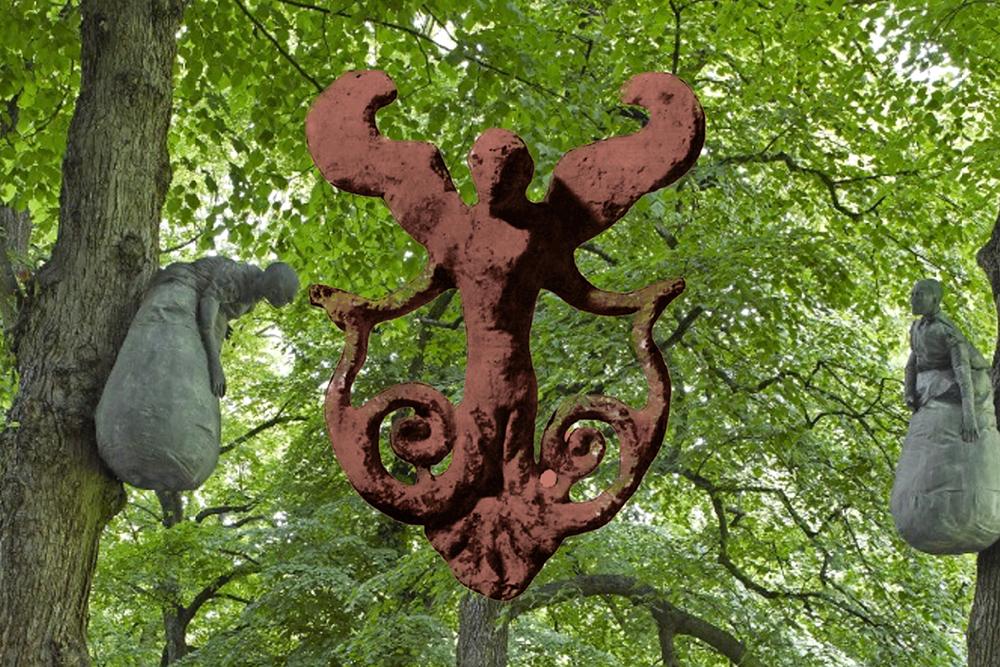
Radically different school
Some of you are teaching, or you've been following traditional pedagogical forms of knowledge paths. What is your position in the Monsters School? How should the audience understand how you perceive the school?
Leonardo Delogu
Our societies today are considering schools as places to “become” professionals. Our purpose is to undo this idea of the school being a preparatory place for “productive time”. Our school is a space for losing time, for not being productive, for unproductive time.
We’re investigating common ground: what do we have in common, what do we want to share? Of course we’ll give inputs, as a process of being together, sharing our thoughts. But the main idea is that we don't need new information. We just need to find a new way of building with the common knowledge we already have.
Gosie Vervloessem
We're talking a lot about “becoming” another, this is some key thing in the school. We want to step out of this capitalist form that disciplines bodies and minds.
Carolina Mendonça
It’s clear how much nowadays school disciplines our bodies. Not only the lessons being taught, also the school’s structure transmits a lot of ideological knowledge. It teaches us lots of things that are considered to be “organic” and “natural”. But in reality, these constructions just make the capitalist society work better.
So the idea of creating a Monsters School is to undo certain ideas of what it means to learn, or to be disciplined. Does it mean to have a certain power relation between the one who knows, and the ones who don't know? When experimenting a different format, we can undo these traditional power relations or expectations. If we undo these relations, then wat will we learn?
Leonardo Delogu
The “unplanned” aspect is important too. Our school is not completely scheduled, because there is this unknown of the big monstrosity that we're gonna face. It’s very different to the common idea of what happens at school.
We won’t have this traditional vertical transmission of knowledge, no, we want to create a common space that opens the possibility of something unknown to come up, something we cannot control. A big part of what’s going to happen during our stay in July, we don't know yet.
Joining forces at school
You invited eight participants, each with their own knowledge, to the school? Can you tell us a bit about the selection process?
Leonardo Delogu
I have this feeling that the final group is a consequence of a random way of selection. It wasn’t an open call really. We were spreading the word about the school, between people that we know are connected with this topic. When you throw a stone into the lake, it creates circles: there is a kind of resonance between persons. So we started to involve people into our conversations. So it was much more a process where we opened questions. Whether people would join or not was a bilateral common choice.
Carolina Mendonça
I think it was less a selection and more a confirmation of the conversations we were having. We wanted to carry on having them in our practices. It already resonated with these people, they felt that they were part of the Monsters School, even though the school wasn’t even mentioned. So it was a recognition of common things, dealing with differences as well, as monstrosity is about recognizing the differences, and feeling resonances.
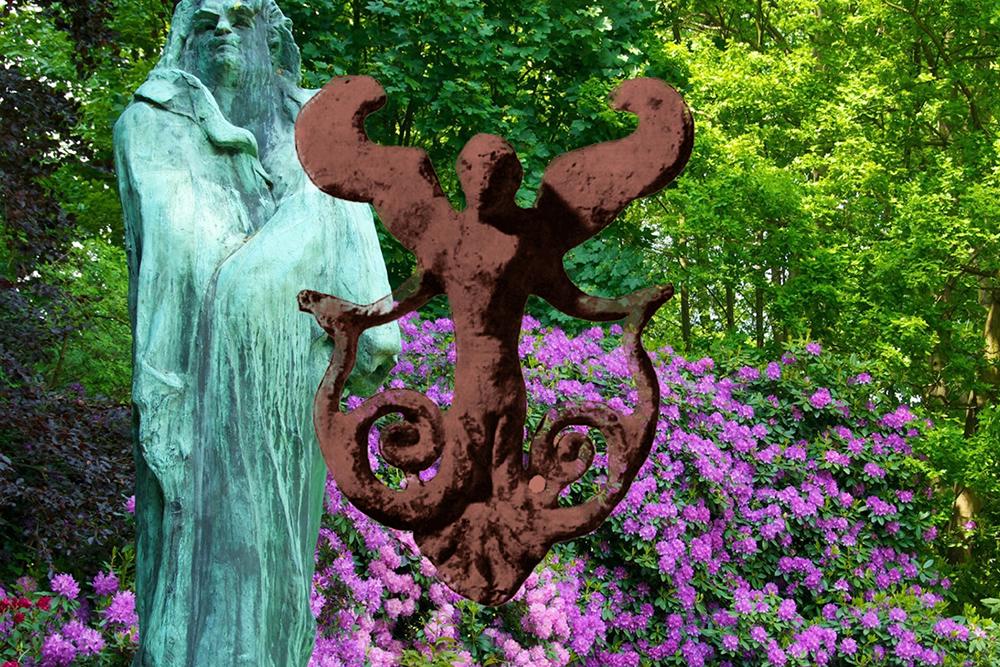
School as a transformative experience
What would you like to see happening after the school project? What happens next to Monsters Assembly?
Carolina Mendonça
What will happen exactly after Monsters School is impossible to answer now, but it can be very beautiful. There’s a certain engagement or “immersion” in a way of organising and being together in the Monsters School. It comes from a big desire that is already part of us, a big need to create spaces and contexts where things are allowed to be done otherwise.
To investigate how we are, who we are, what our bodies can do, what we need, and things like that. So not just reproducing values that are not considering us. I think it’s quite contagious: once we start to feel that this school is possible, we’ll defend this new approach even more.
On one hand, there’s the certainty that it’s a transformative experience. Afterwards, things will take different directions. My wish is to observe these unforeseen things that can come out of this school. Even if it can seem a small gesture, being together for just one month, I feel the potency that this can spread in unforeseen ways. There’s a little capsule of power that can go in many directions, and I want to throw myself into that and then just observe where it goes to.
Leonardo Delogu
I would also point out this idea of exploring the unknown and unproductive time, is necessarily paid. The people that we invited in the school are paid for it. In our capitalistic society, this is a political statement: to find the money to pay the people that are going to participate to the school.
Unlearning lessons
Gosie Vervloessem
For wpZimmer this project is interesting, especially when speaking about tools of resistance. Which tools are we creating during the school? How can we implement those in our organisation, or in the organisation of Middelheim Museum? But these are unforeseen, we're not aiming for them. Yet we are eager to see how we can capture it, or what we can do afterwards, with all participants. Maybe we can not only start experimenting with this kind of tools in wpZimmer, but also bring them to other places.
Carolina Mendonça
One of the things I learned is that when we want to undo things, it's also important to undo our imagination of what can come out of it, because our imagination is already very much informed by the things we know. So when we want to undo things, it’s important to suspend the idea of where we are going to, that we really allow us to deal with the unknown. So that really new things can come out.
This is one of the practices we will investigate: how to engage with undoing things without really knowing where we are going for real. Which is really hard because we are constantly in this progress mood, seeking for something better. We don't even know if it's a better world that we are starting in the Monsters School, we cannot know. But we do know that the world we know today needs to be changed.
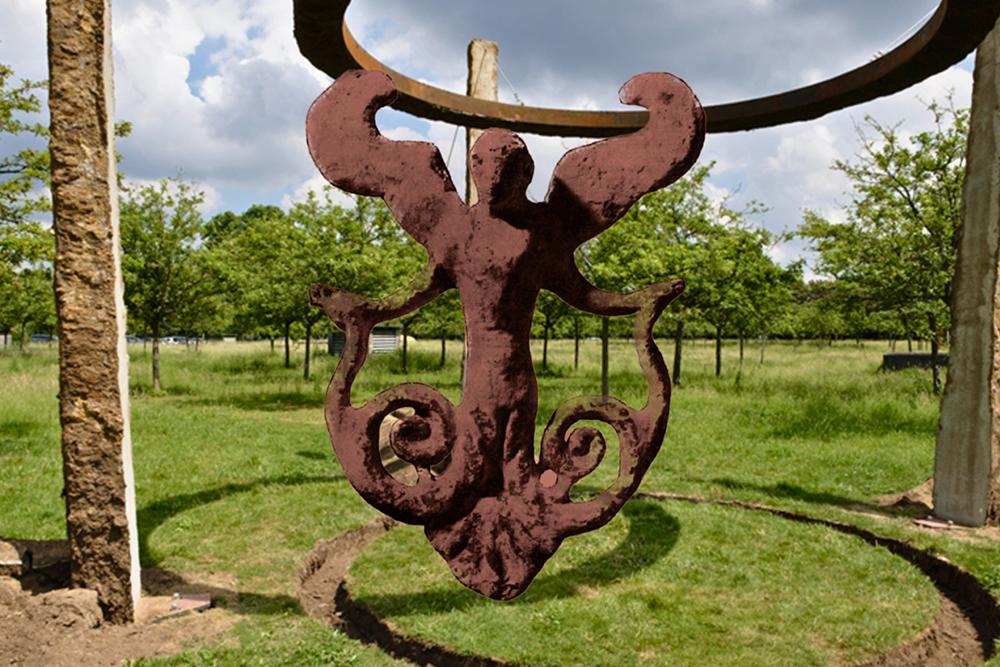
Accept the monster within yourself
What would you say to the people walking in the art park during the time of the school? Do you invite them to assist with an open mind, and just forget about everything they learned in school?
Carolina Mendonça
I would tell the visitors to listen to their own bodies, how they feel, how they are, what they want. And maybe get closer to something that they really want, or go to a space they don't know and see what happens there.
Gosie Vervloessem
Indeed, let them accept being a monster. Doing so is accepting they’re not an entity apart from the park. When you enter the park or wherever, you're “wearing” the whole park in a way. So how do you dialogue with that? For me this is what can happen in our Monster Picnics: that we consciously blend with each other. So it’s about accepting of the monstrous, not only in yourself but also around you.
Monsters Assembly in COME CLOSER
The title of the show is COME CLOSER. How do you relate this to the Monsters Assembly and the Monsters School?
Carolina Mendonça
What Gosie just said: allow yourself to come closer to things that might feel monstrous, but that are also part of you. When we come closer to our monstrosity, we'll also come closer to each other in a way.
Gosie Vervloessem
What COME CLOSER reminds me of, is the sensuality in the project, the intimacy of it. We’ll be working a lot with our senses and sensitivity, instead of our brain. Certain practices of sharing knowledge invite to come closer, and by doing so, experience pleasure.
I like to close this interview with the notion of pleasure that brings us together, either it's a sculpture or either is a performance, there's always this need for pleasure that we search for.
